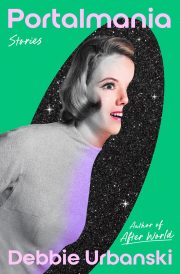Lazy Time Travel: Five Things I Wish I Knew When I Started Out
by Jay Ridler, Ph.D.
Graduation season has come and gone, but we’ve seen lots of great commencement speeches around, from Neil Gaiman’s to Aaron Sorkin’s. They made me mildly nostalgic. I started writing fiction when I began my graduate work, climbing the mountain, paying dues, and getting better (I hope) as I built a career alongside my academic profession. I never went to my Ph.D. graduation, so for shit and giggles, here are five things I wish I’d known when I’d started out writing fiction, back in the day.
1. You’re going to suck, until you don’t: Enjoy the hell out of it! It’s not like anyone’s watching, right? Who cares if your pro wrestling science fiction horror story about the Luchador whose head explodes in the ring makes less sense than MANOS: THE HANDS OF FATE? You learned a lot by getting these stories, clinging to the surface of your brain, out of your system! Enjoy your lame Bradbury/Lansdale/Braunbeck pastiches, your weak plots, and awful dialog. Write ‘em, love ‘em, and then leave ‘em behind. You’ll get better the more you write (as long as you pay attention), and when you look back at what you did last year, you’ll see how far you’ve come. Then, one day, you will write a story that no longer sounds like the sum of your influences. It will sound like you. And, no, I won’t tell you which one, because it would dull the surprise. But I don’t have to tell you: you’ll know it as soon as you write it. It will feel natural. When it happens, crack open the Baby Duck. You’ve found your voice.
2. Go to the Odyssey Writing Workshop: Jeanne Cavelos will be a fantastic mentor, teaching you every facet of story construction and, even better, giving you specific guidance on your own strengths and weaknesses and how to improve both. You’ll do in six weeks what might take two years on your own. And you’ll love every minute of it. And, believe it or not, the first story you write after you get home will sell to a pro paying anthology. Not bad, huh? So, start saving now, and go in 2005 so you can meet all the great folks and speakers like Jim Morrow, Allen Steele, Elizabeth Hand, Steve and Melanie Tem, Sheila Williams and Trish Cacek, or else I am going to kick the shit out of you for missing one of the toughest, most rewarding experiences of your life.
3. The best revenge is succeeding at something you love: remember that editor who said that your heartfelt story, “Billy and the Mountain”, the one filled with some of your deepest fears and best writing to date, was little more than “Robert E. Howard fan fiction” (which it wasn’t, but whatever)? Well, in the not too distant future, that asshat will lose his job and become something of a joke in the industry. But that’s just gravy. Here’s the steak. That story? David Morrell and Nancy Killpatrick, two writers you admire, will buy it for an anthology. But it gets better. Because she liked your story, Nancy will give you your first private invite to an anthology. But wait, wait, it gets better. She loves that new story and buys it! But wait, wait, wait. It gets better! The story ends up in Ellen Datlow’s long list of year’s best horror stories. No, I am not making this shit up, and I hope you see my point. Always write stories you care about and never give up on them.
4. On that tip: it’s fun to write all different kinds of stories, some for a laugh or a gag, or that you’re just jazzed about, or stuff crammed with pulpy goodness. But remember, your best work comes from deeper dungeons. Mine that heartmeat. Be it ugly or beautiful, if it’s a subject that makes you nervous, or might embarrass you, you’re on the right track. Develop your own compass for finding these deeper themes, these pieces of you. Develop an even better compass (from reading, from revising, from getting feedback, and, of course, from writing) for making these pieces into great novels or stories, and then get them out in the world so they can find a home. Don’t settle for good. Grasp farther than you can reach and tell the great stories only you can tell, to the best of your ability.
5. Think for yourself: publishing will be changing as you learn your craft, faster than most people realize. And with changes come both opportunity and quackery. Learn to tell the difference. Keep your mind open, of course, but be cautious of the extremist dialog about how ebooks will either ruin your career, or that print is dead and ebooks are the only way. Avoid drinking too much from any gurus’ kool aid, or being swayed by soft numbers or empty inspirational speeches and their doomsday varieties. Make up your own mind, carve your own path, and be accountable for your own career. Take risks, but don’t be an idiot. Steal good advice from any source and use it to your advantage, but don’t become a trumpet for someone else’s parade. Do your best work, however you can, and hunt for an audience you can call your own.
Bonus lesson: you know that exploding wrestler story? Well, it still stinks and never sold, but by the time you read this, you will have published four stories and a novel featuring the wild and wooly word of pro wrestling, many of them well reviewed. All because you wrote about what you cared about, and married heartfelt story matter to your interests. Pretty good recipe, I’d say. Keep cooking.



